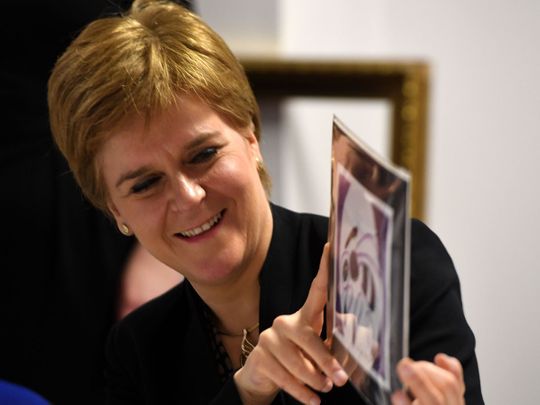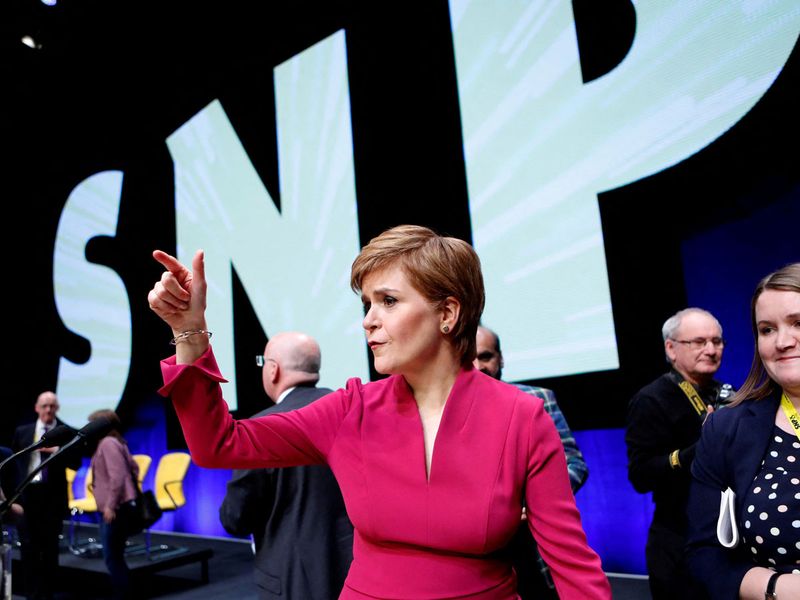
Over the past 15 years, the very utterance of the phrase ‘Scottish independence’ has been inextricably linked to the voice and image of Nicola Sturgeon, the First Minister and leader of the Scottish Nationalist Party in their inseparable quest for separation.
That she decided to suddenly step aside from leading the party has now thrown the very cause of an independent Scotland into some doubt. Whatever about the political cause, the personal cost has simply proven too much for the Glaswegian and Member of the Scottish Parliament.
She can look back on a remarkable career as Scotland’s first woman to lead her nation, indeed the longest-serving person to do so, turning her parting into an electoral juggernaut that is fuelled by the populist cause.
Now, with her departure, there is no obvious heir apparent, no next-best option to satisfy the desire of roughly half of Scotland’s six million people to walk a new path away from the United Kingdom and its partners of England, Wales and Northern Ireland.
Lead by example
Throughout the coronavirus pandemic, her carefully parsed and astute leadership showed her to be the antithesis of all that was wrong in London. Health is a devolved responsibility and under Sturgeon, Scotland remained under stricter conditions.
Indeed, such was her leadership that some opponents of Scottish independence were swayed to the cause: if London couldn’t lead, Edinburgh could.
But the strain of leadership is immense — a burden Sturgeon referred to in making the tough decision to step aside. After a decade, there was little in the tank and not enough, she felt, to drive onwards towards that ultimate destination of a free and independent Scotland.
By dominating the political landscape for so long, she can be genuinely said to be an inspiration for young women in a nation where equality and gender has been at the centre of recent political roughs and tumbles.
But Sturgeon also leaves office at a time when Scotland’s medical system is in crisis. Yes, health is a devolved responsibility, which means that failings over ambulance waiting times, crowded hospitals, medical staff burnt out from trying to do too much to so many with so little resources rests upon the collective shoulders of her as First Minister, and her cabinet colleagues.

There is also a deeply rooted societal issue in cities such as Dundee with street drugs, and that city has the highest per capita death rate of drug addicts than anywhere else in Europe.
For those living on benefits, in poor housing conditions, in areas with little long-term job prospects, the SNP and even its wider message of building a better future for Scots, rings somewhat hollow.
SNP without an obvious successor
In many ways, that the SNP now finds itself as a party without an obvious successor stems in part from the very public fallout between the outgoing First Minister and her predecessor and one-time co-cohort in the march for a sovereign Scotland, Alex Salmond.
Their very public falling-out over allegations about his behaviour marked a low-point in SNP fortunes. That there is a scandal simmering away now over funding and what she might or might not have known about some £600,000 from questionable sources adds the hint of prospective harm to her departure.
That there is no obvious success points to her dominance on the political stage. For her critics, that would be a sign that the SNP is indeed a one woman show, and now might be the perfect opportunity for the Labour Party — long shut out of winning large numbers of seats to build a majority on at Westminster — to reclaim some ground on the left where Sturgeon and the SNP held sway.
The central issue now, with Salmond and now Sturgeon moved on, is what happens to that fight for a nation?
Poll after poll has shown that at least a half of Scots — depending on the time the question of preference is asked — express electoral support for Scottish independence. The defeat of the referendum in 2014 merely served to reinforce the desire to one day roll back the Act of Union of three centuries and return Scotland to the ranks of independent nations.
Responsible government
But winning such a goal requires parties and people — and policies — that demonstrate to those who waiver, that independence would also mean responsible government.
Brexit, and the overwhelming desire of Scots to remain in the European Union, merely served to underscore the differences between those who live north and south of Hadrian’s Wall, and fortified dividing line built by the Romans two millennia ago.
The SNP, so too the Scottish Greens, have proven they have the ability to win support at the ballot box in elections to the Scottish Parliament. So too when it comes to winning seats at Westminster elections. But when push came to shove nine years ago. Sturgeon could not then get the ball over the independence line.
She has kept the cause in game since then. But maybe, with all of the twists and turns and the sheer scale of the fight that lines in forging an independent nation as well as making the case for it, Sturgeon simply realised she was running out of steam.
Maybe, after all, there is a truth in what Boris Johnson noted, that a Scottish referendum is a once-in-a-generation vote. The timing might be put off for another decade now with Sturgeon’s departure?








